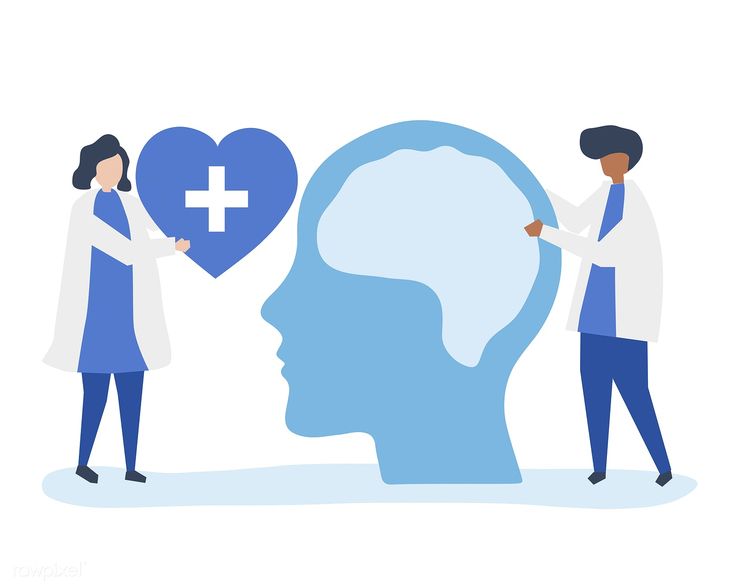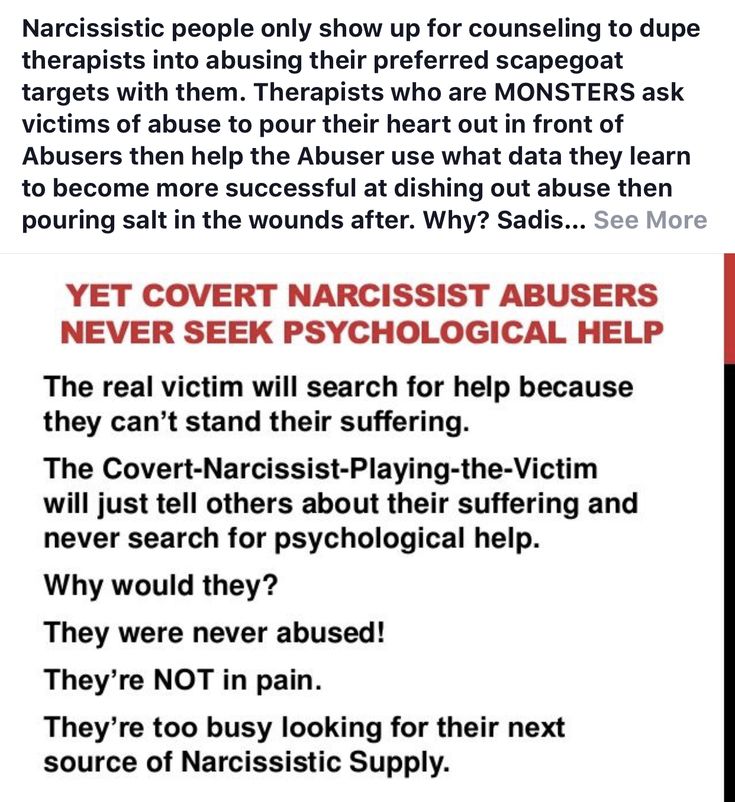Grieving the loss of a friendship
How to Get Over a Friendship Breakup
It’s never easy when friendships end.
You might have been the one to decide to end it, or maybe your former friend decided to end it. The friendship might have been toxic or codependent, or it may have been totally fine and wholesome. It might have ended out of the blue, or you might have just gradually drifted apart.
Either way, it’s a tough deal.
Though friendship breakups are not discussed as often as romantic breakups, they happen to everyone. And they can hurt just as bad – or even worse – than a breakup with a romantic partner.
Ashley Mateo, writing in Oprah Magazine, has this sage insight about friendship and friendship breakups:
“Our brain doesn’t know the difference between a romantic or platonic relationship.”
And oftentimes, neither does our heart.
For more information about our
treatment programs for teens
Call Us (800) 665-4769
Whichever way it ended, it’s now over. And you’re suffering. We put our heads together and came up with some things you can do for yourself to move forward, through and past the pain of a lost friendship.
- Acknowledge your pain. First, know that your grief is normal. The pain from a breakup of a deep friendship is as real and valid as any other. You and your friend probably shared almost everything and spent practically all your time together. You talked on the phone for hours on end, and shared endless texts and messages. And now it’s all gone. That loss of intimacy and connection is real. It’s valid. And it hurts: please don’t try to tell yourself it’s nothing, because it really is something.
- Practice self-care. Though it seems far easier to mope in bed all day, make sure you get out and take care of yourself. Don’t neglect personal hygiene, and participate in your regular daily/weekly activities – even if they’re the last thing you want to do.
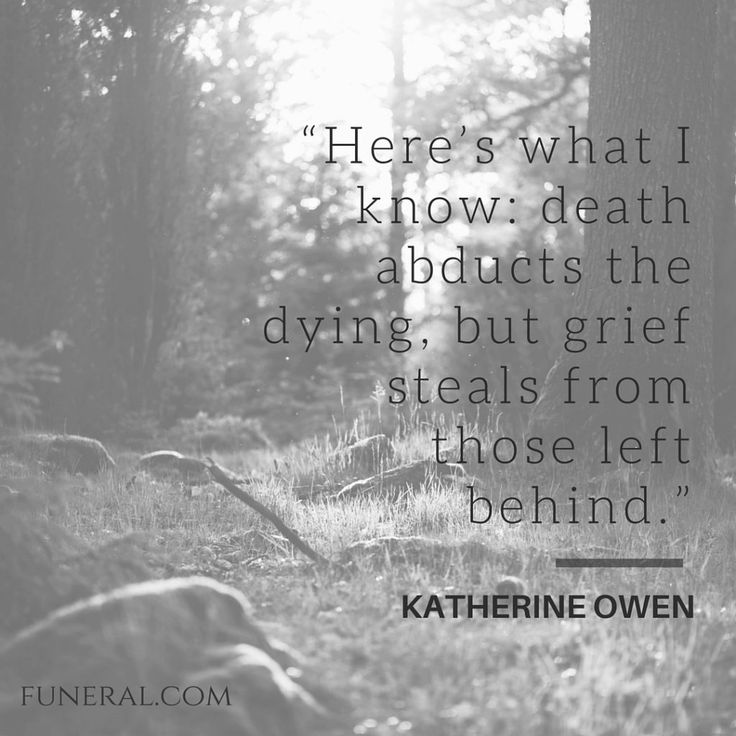 Just going about your regular routine will help you recover from the pain of the breakup. It helps to take part in activities that bring you satisfaction or joy. For you, this could be reading, playing music, creating art, socializing, chilling on the beach, getting a massage, getting your nails done, or something else. If it’s a healthy outlet, and it makes you feel better, it’s self-care.
Just going about your regular routine will help you recover from the pain of the breakup. It helps to take part in activities that bring you satisfaction or joy. For you, this could be reading, playing music, creating art, socializing, chilling on the beach, getting a massage, getting your nails done, or something else. If it’s a healthy outlet, and it makes you feel better, it’s self-care. - Avoid rumination. Okay, that’s a fancy psychology word for going over old thoughts to the point where they interrupt your present happiness. In the case of the modern teen – you – we mean you should avoid browsing through your old texts and pictures all day if they bring you more sadness. If you think it will help you move forward, delete them – but remember, erasing their memory is not what you’re after. You want to process the emotion, not pretend the relationship never happened.
- Exercise. Join a new gym. Practice Pilates, yoga, or strength training. Run around the block.
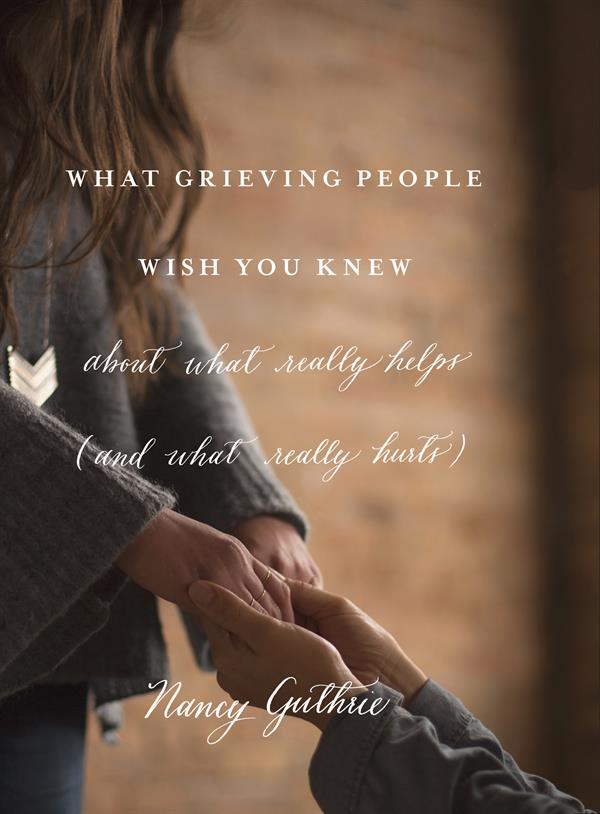 Or pick up something brand new. Physical fitness has wondrous benefits on mental health and overall wellbeing. It can help prevent the onset of depression and anxiety, and it can reduce already existing depressive symptoms in teens.
Or pick up something brand new. Physical fitness has wondrous benefits on mental health and overall wellbeing. It can help prevent the onset of depression and anxiety, and it can reduce already existing depressive symptoms in teens. - Talk to someone. This could be a parent, caregiver, school counselor, or even another friend. If your ex-friend is in the same school as you, try seeking support from a peer in another friend group, like a camp friend, a friend who lives in a different city, or maybe a cousin or neighborhood kid who goes to a different school. Additionally, realizing you have other good friends – even if they don’t live close to you – can make you feel better about the breakup.
- Read about others in your situation. You might think you’re the only one grieving a lost friendship. Think again. Google “friendship breakup” and see what happens: it brings up a long list of helpful articles and advice about how to handle exactly what you’re going through.
 Reading about others in your situation can help make you feel better about your own situation.
Reading about others in your situation can help make you feel better about your own situation. - Try a new friend group. Your former friend might have been in the same friend group as you, which could make things are awkward. If this happens, consider branching out to other peers at school, or try becoming closer with new individuals. Prepare yourself in advance – both literally and mentally – for how to go about this. Be ready for the anxiety you might feel when you walk to another cafeteria table during lunch instead of your usual one. Here are some tips and skills for making new friends that work: we’ve seen it happen many times.
- Examine what went wrong in the friendship. Oftentimes, friendships turn sour when one friend behaves insensitively toward the other. Or sometimes the toxicity is mutual. The root of the toxic behavior can often be tied to mental health issues or an underdeveloped sense of or awareness of boundaries. If you feel issues you need to work on played any part in the end of the friendship, then consider outpatient therapy – especially if this is not the first time an important relationship has suffered, or if you’ve realized that this is a recurring pattern in your life and/or friendships.
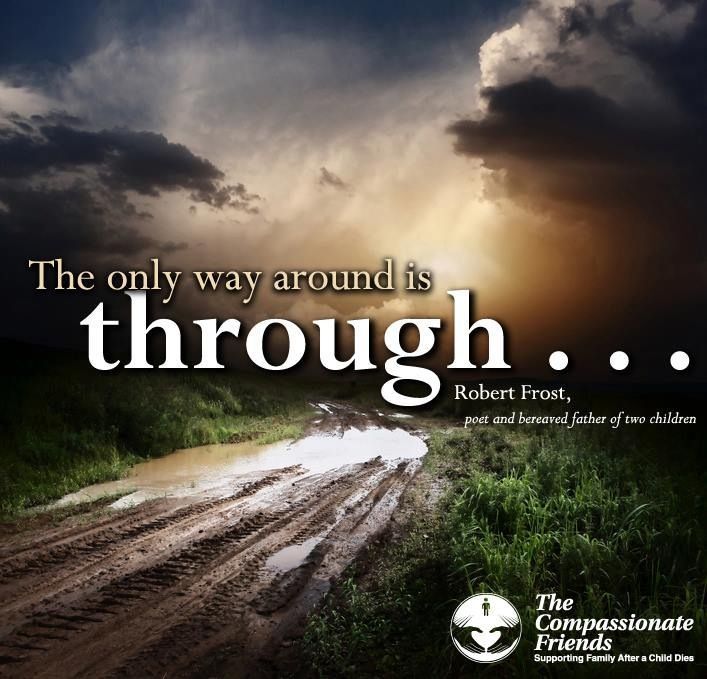
- Check your emotional health . Platonic breakups can induce an incredible amount of grief. If you feel like life isn’t worth living anymore or have thoughts of suicide, seek mental health assistance immediately. Feeling an extreme amount of sadness after a traumatic breakup can eventually lead to clinical depression – if you don’t work proactively to process your grief, loss, and sadness. If you develop clinical depression, you might need outpatient therapy. If depression escalates, you may need to spend time at a mental health treatment center.
Friends and Friendships Change Over Time
When you’re in a close friendship, you might think you two will always stay this close. But friendships don’t always last forever, despite your expectations. Friends come and go throughout your life. Think about it: the friends you had in middle school are not always the same ones you have in high school. And – though you’re not there yet – you should know your high school friends won’t always follow you to college.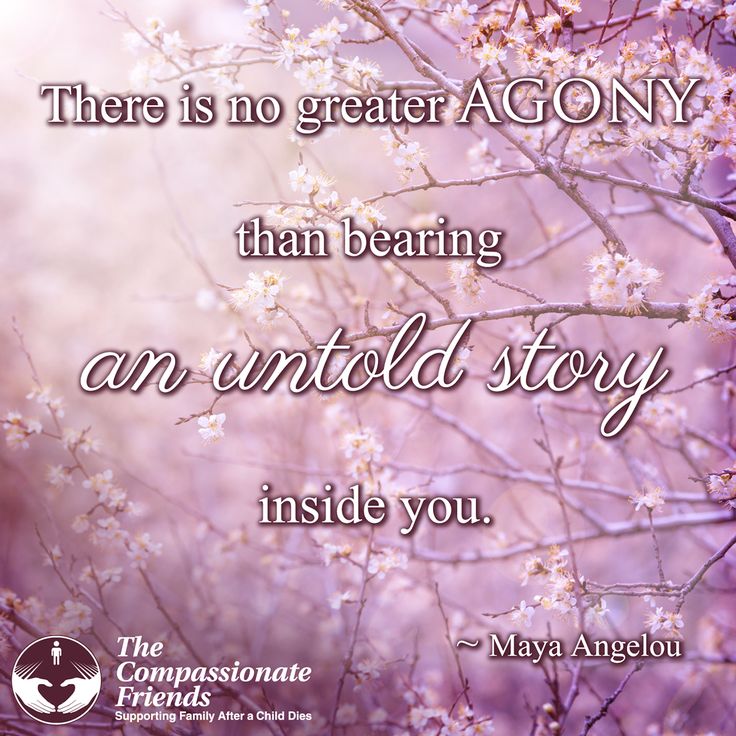 And whether you go to college or not, things change when you join the workforce: you develop a new set of work-friends/colleagues, completely different than friends you had in the past. Let this bring you comfort. Although this friendship may be over, know that as you move on in life, you’ll keep making friends – and they’ll keep enriching your life, just as you’ll enrich theirs.
And whether you go to college or not, things change when you join the workforce: you develop a new set of work-friends/colleagues, completely different than friends you had in the past. Let this bring you comfort. Although this friendship may be over, know that as you move on in life, you’ll keep making friends – and they’ll keep enriching your life, just as you’ll enrich theirs.
Ready to Get Help
Evolve offers CARF and Joint Commission accredited treatment for teens with mental health disorders and/or substance abuse. Our clients receive the highest caliber of care in our comfortable, home-like residential treatment centers. We offer a full continuum of care, including residential, partial hospitalization/day (PHP), and intensive outpatient treatment (IOP).
To speak with our admissions coordinators, call: (800) 665-4769
Yael Klein
Originally from California, Yael combines her background in English and Psychology in her role as Content Writer for Evolve Treatment Centers.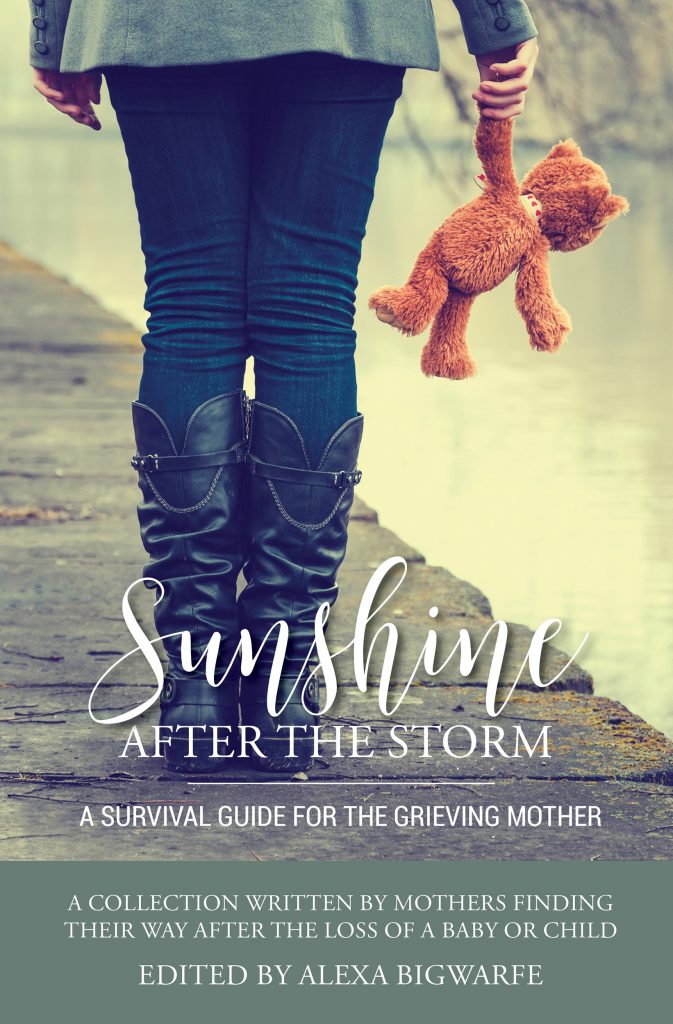
How to get over a friendship breakup |
Angus Greig
The loss of a friendship can be devastating.
Whether it’s the slow drifting apart from a childhood friend, the sudden, sharp distance created by a disagreement, or one of the many relationships that have quietly fallen away during the pandemic, losing someone that you thought would always be in your life is profoundly jarring.
But friendship breakups will happen over the course of our lives, and we need to start learning how to deal with them in healthy ways, says friendship coach Danielle Bayard Jackson.
The most significant thing we need to do, says Jackson, is normalize the fact that sometimes friendships do end and that can actually be healthy. However, we haven’t been taught to carry this expectation into our friend relationships.
“We’re not looking at our friends through a lens of ‘Gosh, I hope this works out’, but we’ll do that with a romantic partner for sure,” says Jackson. “With a partner, we wonder if they’re going to be the one. But with friends, we assume they’re the one from the minute we establish that we like each other.”
“With a partner, we wonder if they’re going to be the one. But with friends, we assume they’re the one from the minute we establish that we like each other.”
And because we don’t view the loss of a friendship as a normal occurrence, it feels like a personal failing when it happens and something we should be ashamed of. Or, as Jackson puts it, “If friendship is supposed to be easy and yours ended, what did you do wrong?”
But that isn’t the case.
Friendships, like any relationship, sometimes aren’t meant to be — and even if they are, maintaining them takes real work. Kristen Newton has been interested in this work for years and founded HEARTConvos, which aims to help people who feel stuck in unsatisfying friendships have the kind of open and honest communication that keeps a friendship healthy.
“[Otherwise] I think we feel blindsided because we belittle the value and significance of our social connections and friendship. Yet we recognize the weight that they carry when they don’t work out, and we experience that hurt and disappointment,” she says. Here, she and Jackson share their advice.
Here, she and Jackson share their advice.
How do you get over a friendship that has ended?
1. Give yourself space to grieve the lossThis is the most important place to start. Be honest with other people in your life about what you’re going through, and try using the same language and self-care that you would during a breakup with a partner.
“Definitely get the ice cream!” says Jackson. “I think some of us try to be tough, and it feels a little juvenile — maybe a little vulnerable — to say ‘My feelings are hurt and I am sad over a friendship’. Feel the feelings the same way you would grieve over a romantic breakup.”
Newton agrees. “To the brain, a breakup is a breakup,” she says. “Sometimes people are wrestling through stages of grief. Then you start asking yourself: ‘Was I unhealthily attached to this person in a romantic way?’ [Because] I’ve only ever associated this type of pain in a romantic connection or with an egregious hurt in my family.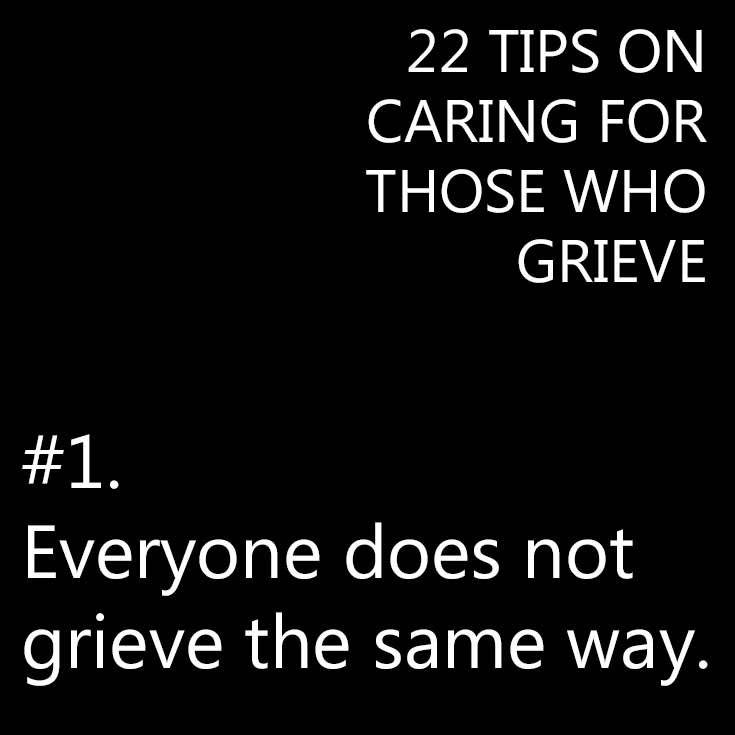 ”
”
But friendships are just as important and the feelings tied up in them just as profound — more even, because we expect them to last much longer. When Jackson posted a TikTok about this emotional significance of friendship early in 2021, the comments took an unexpected turn. “I was surprised by how much pain there was surrounding lost friendships. That wasn’t even what the video was about, but that’s where the conversation went. So I think a lot of us are still hurt by those things and looking for a space to process how to move on.”
@thefriendshipexpert#stitch with @sanjanamusic Spend your time in your twenties investing in your female friendships. Like, seriously. #femalefriendships #friendship
♬ original sound – Danielle Bayard Jackson
2. Get closure, if you can
With a romantic partner, there’s usually a breakup conversation and you know that you’re either in the relationship or you’re not, says Jackson.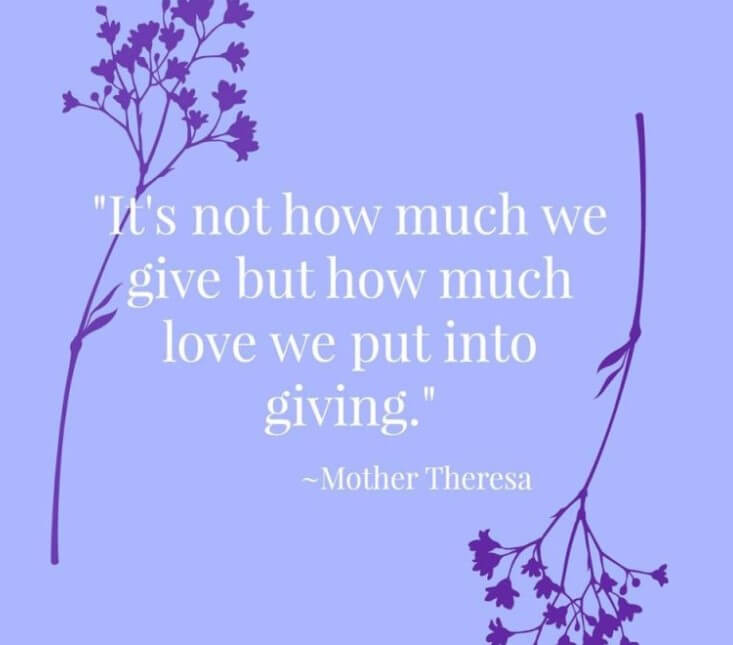 “But the very blurry nature of starting and ending friendships makes it hard to navigate to the end — because when is it the end?”
“But the very blurry nature of starting and ending friendships makes it hard to navigate to the end — because when is it the end?”
Newton recommends “diagnosing” what has gotten you to where you are — this means asking yourself a lot of questions. What exactly happened? How is it affecting me? No, how is it really affecting me?
Then, you can do your best to get clarity from your friend at this stage. “You can think about why everything is settling the way that it is. That is not in an effort to change the other person’s mind, but just so that you have a sense of closure as you’re going into that loss,” Newton says.
If a friendship has ended badly, this may mean accepting that you won’t get to have a final conversation with them, says Jackson. “Try your best to stop replaying and rehearsing what you should have said. But if a part of your healing process might be to say your piece, or to apologize if you are the one who did something wrong, then you need to apologize whether they write you back or not.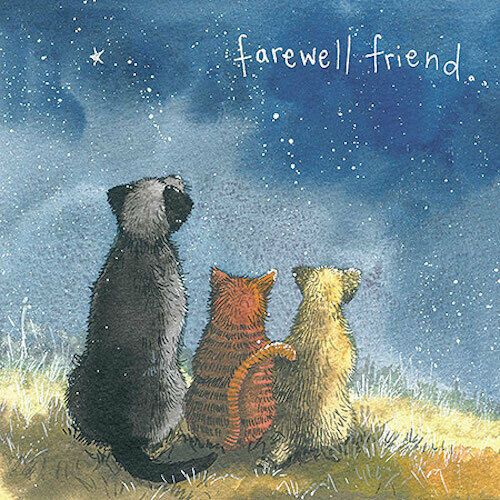 ”
”
“Once you have a proper diagnosis of the impact of the breakup on your life and on your mental and emotional state, then you can treat it properly,” says Newton.
This might mean talking through things with someone you trust, creating space for yourself to grieve some more, or removing things from your life that trigger memories you’re not quite ready to process yet.
Jackson recommends moving towards using the language of gratitude. “Once you can start to put the relationship in the language of the past tense and say, ‘You know what, I’m so thankful they were in my life during this season,’ you can have gratitude for it and not feel bitter.”
4. Assess the health and boundaries of your other friendshipsOne of the biggest worries that comes with a friendship breakup can be how it will impact your wider group of friends. Trust these other connections, says Newton, and don’t try to hide what’s happening. “If I cut off my hand, the rest of the body is going to notice that I don’t have a hand anymore. But when friend groups don’t have healthy boundaries as a part of their friend culture, if one person falls out with another person within the group, the whole group is going to fall away.”
“If I cut off my hand, the rest of the body is going to notice that I don’t have a hand anymore. But when friend groups don’t have healthy boundaries as a part of their friend culture, if one person falls out with another person within the group, the whole group is going to fall away.”
Great, you’re thinking — even more loss! But if that’s what ends up happening, it means those friendships weren’t healthy to begin with, and they are not well set up to support you. A huge part of maintaining healthy boundaries, says Newton, is realizing that it’s OK to have different levels of connection with each other within a group. You can feel very close to some people; others only enter your life because they are friends with your friends.
Make it a habit to take the pulse of your most important friendships regularly. “Be in the habit of debriefing your relationships, keeping tabs on one another and saying ‘Hey, how are we doing?’,” says Newton.
It’s easy to assume our friends will always be there, but close relationships require maintenance.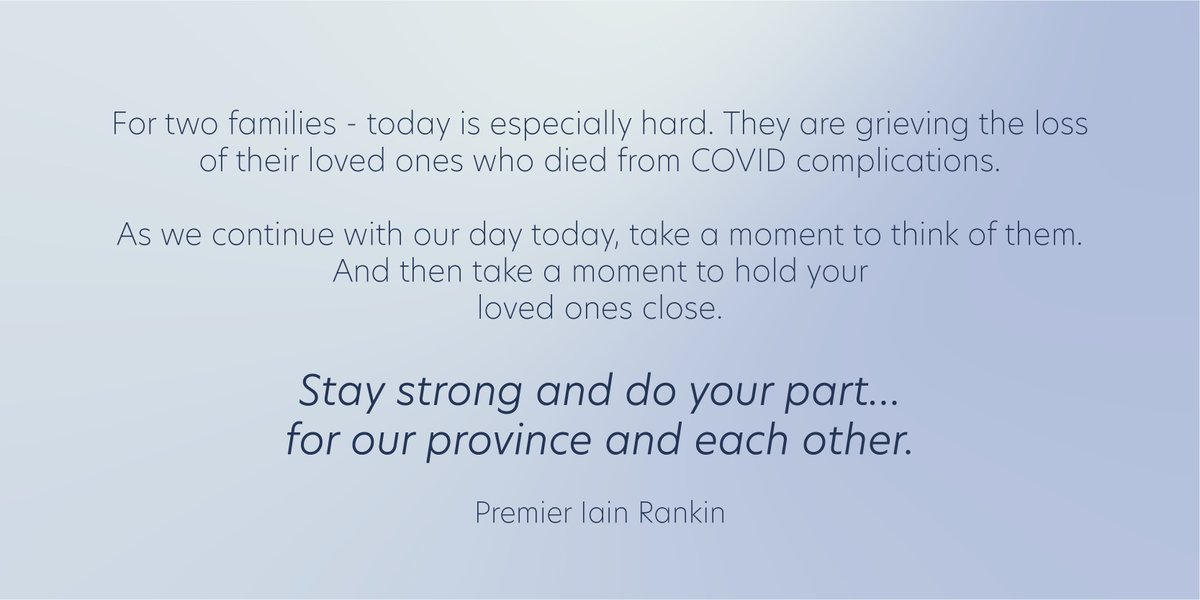 This involves having very real conversations, and regularly checking in with each other in a meaningful way that can flag problems before they become problems.
This involves having very real conversations, and regularly checking in with each other in a meaningful way that can flag problems before they become problems.
It’s not always easy to meet new people, especially once you get past your 20s, but it’s important not to let the loss of one friend make you feel unworthy.
“I see it become a barrier sometimes to making new friends,” says Jackson, “because we find so much of our identity in our friends. So when a friendship is over, what does that mean for me and who I am?” Losing that sense of belonging and acceptance is hard and all the more reason to work on developing an unconditional sense of self-worth that is innate and can support you through difficult times.
Lastly, Newton says, it is important to understand that “the overwhelming sense of emotion that we feel amidst a breakup sometimes can feel paralyzing.” It can be very difficult to cope with. “Give yourself the freedom and permission to feel what you feel, remind yourself of what is true, and act on what you believe.”
“Give yourself the freedom and permission to feel what you feel, remind yourself of what is true, and act on what you believe.”
Watch Kristen Newton’s TEDxIUPUI talk here:
Five stages of grief - truth or myth?
- Claudia Hammond
- BBC Future
Denial, anger, compromise, depression and acceptance. Is it true that a person experiencing the pain of loss goes through certain stages? Let's look at the research data.
image copyrightMilan Popovic / Unsplash
"Tosca is a place we don't know until we visit it ourselves. We realize that loved ones can die, but we don't know exactly what awaits us in the first days and weeks after losses".
These are the words of the American writer Joan Didion, who described her feelings in the first year after the death of her husband in an extremely emotional confession "The Year of Magical Thinking".
The theory of five stages of grief - denial, anger, compromise, depression and acceptance - is firmly rooted in popular culture.
Articles are written about her and remembered in serials, and the artist Damien Hirst created a series of paintings, calling them the acronym "DABDA" (denial, anger, bargaining, depression, acceptance).
How long each stage lasts is not specified, but it is believed that all of them must go through in a certain sequence.
- Regular exercise saves you from depression. But not always
- How hormones, immunity, microbes and pulse affect our character
- How parental quarrels affect the health of children
studied the disposition of children to parents) and Colin Murray-Parks.
Researchers interviewed 22 widows and identified four stages of grief: numbness, searching and longing, depression and rethinking.
The current classification was developed by psychologist Elisabeth Kübler-Ross, who worked with terminally ill patients and asked about their near-death experiences.
Kübler-Ross, by the way, radically changed the attitude towards palliative care and raised the question of the doctor's responsibility not only for the health of patients, but also for how they live their last days.
Image copyright, Getty Images
Image caption,How does a terminally ill person feel?
Skip the podkast
Podkast
Bulo
Golovna Tizhnya, Yaku explain our magazines
Vypuski
, as well as the point, as a systematic audit, as a systematic verification, as a systematic verification, as a systematic verification, as a systematic verification, as a systematic check In the early 2000s, Yale University researchers first took up this topic.
Over the course of three years, they interviewed 233 bereaved people (usually a wife or husband). The interviews were conducted approximately six, eleven and nineteen months after death.
The researchers did not look at cases of violent death of a relative or complex grief reactions.
The picture they got was more complex than the five-stage hypothesis. The researchers found that the most common emotion was acceptance, while denial was not experienced by everyone or to the same extent.
The second strong emotion was longing, and a depressed state accompanied all stages, and it was more pronounced than anger.
In addition, the emotional stages did not change each other in a clear sequence. A person in the third stage of grief could, for example, experience acceptance rather than anger.
Image copyright, Getty Images
Image caption, A popular theory is that when we experience grief, we go through five successive stages.
Longing for the deceased can last for years, but in the end, most people cope with grief.
For ethical reasons, the first interviews were conducted only a month after death, and therefore the researchers did not have an accurate picture of what a person feels in the first days and weeks after the loss.
Later, a study of people's reactions to violent death was conducted, but its participants were mainly students who lost more distant relatives than their spouse.
A strict sequence of stages was also not confirmed, although acute mental pain was more characteristic of the first stage, and acceptance - the last. However, unlike in the previous study, the scientists did not follow the reactions of one person over a long period of time.
Another study found that older people experience loss differently.
George Bonanno of Columbia University observed elderly couples before and after the death of one of their spouses. He found that 45% of people did not feel severe pain either immediately after the death of their other half, or later.
10% of widowers and widowers even felt some relief. People showed resilience and were able to cope with grief.
Bonanno's latest study in 2012 also disproved the idea of stages of grief.
However, whatever the results of the research, the theory of five stages of grief is attractive in a certain sense, because it gives people hope for gradual relief.
Ruth David Koenigsberg, author of The Truth About Grief, notes that the five-stage theory makes people feel certain things.
"It calms those who have similar emotions, but makes those who experience the death of loved ones differently feel guilty," Koenigsberg writes.
Image copyright, Unsplash
Image caption,Everyone experiences loss in their own way
"A person may think that something is wrong with him, that he does not feel what he should feel," the author adds.
However, research clearly shows that there is simply no "correct" way to mourn a loved one. Everyone experiences grief differently, and that's natural.
The feeling of loss remains, but the longing goes away with time, at least for most people.
Some "scenario" of what you will experience next can be somewhat reassuring, but, unfortunately, real experience often differs from theory.
After all, life is much more complicated.
The purpose of the article is general information. It cannot replace the medical advice of a specialist. The BBC is not responsible for any diagnosis made reader based on information from the site. The BBC is not responsible for the content of any external Internet sites linked to by the authors of the article, nor does it endorse any commercial product or service mentioned on on on any site. Always consult your doctor if you have questions related to your health.
You can read the original of this article in English on the website BBC Future .
Follow us on Twitter and Telegram
A man has died. What to do and how to survive? — About Palliative
Contents
If sad news is received...
The first days after the loss of a loved one: life in new conditions
Resentments and emotions
Fear
Physiology
Healing tears in death are near 9001 guilt
We offer you to get acquainted with an excerpt from the book "A man died. What to do and how to survive?" Publishing house "Nicaea". The author-compiler is a crisis psychologist Mikhail Khasminsky.
Let's talk about the things you usually don't know: how to deal with acute grief when your loved one has died; what happens at this moment with the psyche, with human physiology, what emotions and why he experiences; what practical steps to take in the early days of "extreme grief" and how to help yourself during this difficult period.
Written by psychologists, this book contains advice for Orthodox believers, but is also suitable for a wider audience.
If sad news is received…
The death of a loved one is an extraordinary event affecting many aspects of a person's life. There is such a thing as “extreme grief”. This is the state in which a grieving person is the first time after the loss. Usually the period of extreme, or acute, grief lasts until the third or ninth day, sometimes a little longer. Shocked by what happened, we do not know what to do, how to react, what to pay attention to. How do you stop grief from engulfing you? First of all, it is important to recognize that you need support. Try not to be alone with yourself and not withdraw into yourself. Share your feelings with those you trust. Usually people experiencing grief do not realize that they need help, they overestimate their physical and psychological state, believing that they can handle everything on their own. But such an overestimation of one's capabilities is actually the result of an extremely stressful situation that distorts the real perception of reality.
You need help from your loved ones!
Death of a loved one Brochure with recommendations on what to do and where to go in case of death of a person in Moscow
Some recommendations for those whose loved one has died contact as soon as possible with a person close to you (friend, acquaintance, relative), tell him about the grief that has befallen you, ask him to come support you and, if necessary, help in organizing the funeral. Look for people who have the qualities of character that are necessary at the moment (decisiveness, activity, organizational skills). Well, if someone will control your physical condition. Five stages of accepting the inevitable: it doesn't work for me What are the challenges of living through grief? Does talking help? How to live after the death of a loved one? Telling the personal story of a woman who lost her husband Funerals and commemorations have passed... Relatives and friends who supported and helped all this time are gradually returning to normal life, to their own affairs. How to live on? How to adapt to a new situation? If you have already begun to ask yourself these questions, then you understand that you need to change something in your attitude to life. This does not mean that you should forget the deceased, pretend that nothing happened. On the contrary, grief must be lived through, but with the least bodily and emotional disturbances. What is needed for this? First of all, try to realize at what moments of your life you became most vulnerable — whether it is in everyday life, emotional, perhaps professional. When you understand where the "biggest gap" is, it will be easier to close it. And, just as a small child gradually learns to walk, begin to cope with new tasks on your own. For example, a man who has lost his wife, who did all the housework, can learn to manage the house himself, or he can turn to special services to maintain the comfort of the house at the usual level. And another important point: for the first time after the death of a loved one try to postpone the solution of global issues for some time (buying / selling real estate, moving, etc.). I felt good, I felt bad About “survivor's guilt” and the fear of losing pain. Writer and screenwriter Anna Kozlova talks about the experience of her husband's death and about what saved her and continues to save her. Things are more complicated with emotions: Do not listen to those who advise you to “be strong, hold on, take courage…” . Do not accumulate tears! If you feel like crying, cry; if you feel sad, be sad. Consider who you can talk to about a loved one who has left you . If there is no such person in your environment, use the modern possibilities of psychological support - for example, the Memoriam website, helplines, psychological assistance services. The main thing is to speak. "I'm like a leper." What support groups give widows Psychologist Elena Kartavenko explains why communication with people who have a similar experience of loss can help to move on Do not try to talk to the deceased . Physically, he is no longer around. Do not turn to the occult, do not listen to those who are trying to tell you about superstitions, signs and so on. Keeping a diary helps soften acute emotions . Write about your thoughts, feelings, about the pain of loss. Make it a rule to re-read what you have written after a while, and then try to analyze what has changed over this period of time. What feelings have become stronger? Which ones are gone? What have you learned? Such introspection will reveal your weaknesses and strengths. Another way to relieve pain is to write a letter to the deceased . Even if death was not sudden, there is always a lot of unspoken, unspoken. Write. You need it, not him. If you haven't said something important, you have the opportunity to do it now. Don't be afraid to look funny because there is nowhere to send the letter, you can just burn it. It is important that the letter will help to get rid of the burden of inconsistencies that you are carrying. Support for loved ones after the death of a relative: the German experience When should one talk to a survivor of the death of a loved one, and when should one leave it alone? Why can a grieving person be thrown from laughter to tears? How else can grief manifest itself? If you don't like to write, but emotions and memories overwhelm you, try this method. Be natural in grief . Do not allow others to impose any behavior patterns. At the same time, do not refuse the help of loved ones if you need it. Be patient . No one can tell how long you will experience the pain of loss. Grief is like a surf - it will recede, then it will surge with renewed vigor. Holidays and family dates are especially difficult. For many years, pain can appear on the birthday of the deceased, on the anniversary of death, on New Year's Day or Christmas. Don't hide from your feelings. Unleash your memories, order a memorial service in the temple, pray at home, visit the cemetery. One of the strongest feelings that can accompany loss is fear. Night or day, alone or in a crowd, fear comes unexpectedly and literally paralyzes you. What to do in such a situation? It is important to understand that this is not the fear of an adult in a real dangerous situation, but rather a "childish" reaction to the unknown surrounding you after the death of a loved one. To regain your "adult" state, stay "here and now", try the following. If you feel fear, first look around. After all, there is no immediate threat to your life and health? Do this: select five colors that surround you. What color is the ceiling? Floor? Armchair? Curtains? Your clothes? Look at any objects, but you should not just recognize the color by smearing it with your eyes, but identify it, perhaps name it out loud. Look at what surrounds you. Pay attention to the colors, perhaps call them out loud. Photo: Oskars Sylwan / Unsplash Next, select five sounds: a clock, a bird, a car outside the window, a TV set, anything, but there should also be five sounds. In the silence of the night, it can be the sound of your breathing, the beating of your heart, the rustling of a blanket, the wind in the foliage outside the window, the sound of water in the pipes ... Listen carefully, each sound also needs to be distinguished and named. Then listen to the sensation of your own body. Are your hands warm or cold, dry or wet with sweat? Legs are the same. For visually and hearing impaired people, color or sound discrimination can be replaced by the tactile sensations of objects. Touch what is near you. Identify five different sensations - wool carpet, cool wood furniture, soft upholstery of a chair, paper wallpaper ... Try to distinguish the subtle smells emitted by these objects. Usually this exercise returns a sense of reality with irrational fears. The biochemistry of stress: hormones are to blame What happens to the body when we are nervous and how to deal with it Now a little about the physiological aspects of grief. Today everyone knows about the connection between the emotional and the somatic (bodily). Deep experience can cause diseases of the body. Grief manifests itself in the appearance of a person. Grieving muscularly clamped, tense, unable to relax. Try to follow your daily routine . Do not forget about food, but do not rush to the other extreme - do not "jam" grief. If the “urge to eat something” is uncontrollable, try to understand: are you really hungry or just need to be comforted in this way? If you lack emotional support, seek it from loved ones, friends, or professionals. Another vital need to be met is sleep . If you can't fix it on your own, see your doctor for medical support. The pace of your life is also a very important aspect. It is possible that during the period of grief you will not be able to perform all the functions that you easily coped with before. Time passes, emotions that prevented breathing weaken, are replaced by others. You will always miss a dead person, just a sharp pain will be replaced by sadness and sad memories, and then they will become bright. So, the most difficult period is over. Grieving does not mean forgetting. It means learning to live fully after the loss of a loved one. From the memoriam.ru forum: I went through most of my son's things before 40 days. I put his school uniform, some shoes, a new, never worn down jacket in a huge box. She asked her friend to look for who needs things for the boy. The mother of one of her friends found a large family, and everything was handed over to her. M. People can't stand the pain of others About what can be done for a person who has lost a loved one. Personal experience. Nothing in the world exists just like that. And it is no coincidence that we are endowed with the ability to cry from birth. For example, for an infant, crying is the only way to get attention. As children grow older, especially boys, they already begin to be ashamed of tears and cry less and less. But still, in the life of each of us there are moments when even the most persistent men can hardly hold back tears. Emotional tears are the body's reaction to moments of life that are extremely difficult for the psyche: grief, resentment, disappointment, annoyance, pity, as well as joy, tenderness, tenderness, and even a manifestation of love. True, tears of happiness are very rare, mostly a person cries when he is very ill. No wonder such tears are popularly called bitter. They help our psyche to cope with a difficult situation. We can say that emotional tears “wash away” stress. Crying is inherently the most effective means of expressing human emotions. Some people find it very difficult to bear the sight of other people's tears. The call "Don't cry!" for them - the only way out of a traumatic situation, when they are not able to calm them down with anything else. After all, not everyone is capable of compassion. Many are simply lost, seeing the weeping and sobbing of the grieving, and do not know how to act and what to do. Learning to grieve and live with death Is there a place in the public space for the topic of death, and why it may be important for everyone Most often they hope that with time the suffering person will cope with his grief on his own and he does not need help in this matter. And it happens that people themselves forbid themselves to cry. It seems to them that, giving vent to emotions, they will only make things worse for themselves and those close to them. To cry for such strong-willed people means to “fall apart”, and they cannot afford it. As a result, unshed tears do not disappear anywhere, but are driven into the depths of the soul, where they accumulate and accumulate. Suppression of tears can also affect physical health. The fact is that when emotions are blocked, muscle tension occurs, as a result of which the work of the whole organism is disrupted. Any emotion is energy, and, according to the law of conservation of energy, it does not disappear anywhere, even if we try our best to suppress it in ourselves. Therefore, the best way to get rid of negativity and pain is to let them out. Don't hold back your tears. Tears can be healing. Photo: Christian Newman / Unsplash Grieving at work How to help yourself when you have to go through acute grief and at the same time continue to work, fulfill your social functions You can allow yourself to grieve at work. It also happens: a person would be happy to cry, but there are simply no tears. To relieve muscle tension resulting from suppression of feelings, there are various techniques and breathing exercises. But this problem is best solved with the help of a specialist psychologist. On your own, you can help yourself with moderate physical activity, such as stretching exercises, swimming. We all know that women cry more than men. This is partly due to social stereotypes. In our society, crying is interpreted as a manifestation of weakness, helplessness, infantilism. From childhood, boys are taught that it is shameful to shed tears: “Be courageous, boys do not roar.” Parents in this respect can be understood - they pursue an educational goal. But still, it is necessary to distinguish between the moments when it is appropriate to say: “Don’t cry,” and when it is necessary to accept the tears of a child and teach him to express his emotions correctly. By the way, the fact that the representatives of the stronger sex live less than women is largely due to their emotional restraint. Men don't cry Why it is difficult for grieving men to express their feelings and what to do about it Yes, men by nature have such a feature of protective behavior as high control over the manifestation of any emotions, both positive and negative. Anyone who experiences the death of a loved one experiences longing, cowardice, and even grumbling. This is a normal reaction of our psyche to grief. Danger arises when sadness is replaced by despair - the loss of hope. If a person falls into despair, then tears from a cleansing medicine for the soul turn into a nutrient substrate, on which diseases of the soul begin to parasitize, making life unbearable. Tears in this case can become a way of life, which, of course, is not necessary for either the deceased or the one who cries about him. From the memoriam.ru forum: My husband died on New Year's Eve. Around the pre-holiday fuss, people are getting ready - they are buying food and gifts, but I am alone with my grief. Those who sympathized quickly plunged into their lives. The "vacuum" has come. I read that you have to let yourself cry, shout out. And grief really rushed out of me. Every evening on the way home from work, I checked to see if the neighbors' lights were on, to see if I could let myself go in my room today or sit in the bathroom and howl with the water turned on. But in any case, as soon as she crossed the threshold, she sat down on a bench in the hallway and began to howl and yell, barely closing the door behind her. On holidays and weekends, she retired to the village and howled: “Where are you, my beloved?! I am dying without you! I can not live without you!" It just worked out that way. The cat started yelling at me too. And the stray dog that lived on our street, which my husband loved and fed, also howled. And around the holiday and fireworks. And no one, probably, suspected what was happening in a single house, where the lights were on and it was as if they were celebrating the New Year. Some of the acquaintances, not knowing about what had happened, sent congratulatory sms. And I was alone with God and there were only animals who sympathized with me. And then one day instead of the phrase “Where are you, my love?!” I suddenly, in a frenzy, automatically began to shout: “You are strong, you can stand it !!!” And so several times. As if someone put this phrase in my mouth. And then, yelling, I realized that I could survive it. Svetlana If the feeling of guilt breaks the heart into pieces In all the languages of the universe, so dissimilar, we are connected by one dialect - the one that sounds in our hearts as the voice of pain. When we lose loved ones... One of the strongest feelings that can overwhelm a person after the death of a loved one is guilt. Many people feel remorse because they could not prevent death or were unfair to the deceased during his lifetime. It seems to them that if they turn back time, they would behave in a completely different way. Usually this is expressed in endless questions to oneself: “What if I had come to him earlier?”, “And if he had not flown on this plane?”, “If we had not quarreled, she would have stayed at home that day ... ". This reaction to loss is quite natural. It is common for people to look for explanations for every event. But if we talk about death, then it is very difficult to predict it. Sometimes people experience a feeling of guilt towards the deceased, although there is no guilt. For example, a husband, at the request of his wife, decided to replace a burnt out light bulb - and he was electrocuted. The wife feels guilty. But she couldn't have foreseen that a misfortune would happen! If a person thinks that everything depends only on his foresight, he takes on too much. This is not conscience, but pride, a sin that must be got rid of. People with adequate self-esteem understand that not everything in life obeys them. However, the bereaved often perceives the situation inadequately and exaggerates the degree of his involvement in death. Or a wife sometimes regretted in her heart that she had connected her life with her husband, and thought: “If only he disappeared somewhere!” And if suddenly the husband dies unexpectedly, the wife may think that it was her thoughts and desires that “materialized” and the fault in what happened lies on her conscience. We all say bad words to each other, do bad things, make mistakes. But some try to correct them and understand that they are not omnipotent, while others think that everything that happens around them is caused solely by their behavior. Test. Do you know how to console a person in grief? Sometimes, out of ignorance, our consolation can hurt very painfully. This is not taught in school, rarely taught in the family. We invite you to take a quiz that describes common situations where support is needed. The test is based on articles about grief and consolation published on our portal. Check how ready you are to turn your shoulder. Perhaps you will understand how to do it better, or you will recognize your mistakes. Guilt can take many different forms. So, psychologists talk about the guilt of the survivor - the feeling that we should have been in the place of the deceased or do not have the right to life, since he is no longer with us. Many feel guilt associated with a sense of relief that a loved one has died, for example, if the departed was ill for a long time or suffered before death. There is also the so-called guilt of joy, which occurs long after the loss. It is connected with the fact that after the death of a loved one, happiness reappears in the life of his loved ones. For example, a widow who met and fell in love with another man may experience such guilt. In this case, it should be remembered that joy itself is a healthy experience, a sign that we are living a fulfilling life. Journalist Anna Danilova talks about the loss of her husband, a new family, and an open door The very fact that another person has an experience of loss already makes you feel better - at least you understand that this did not happen to you alone. Because at first it seemed that the sky collapsed on your head alone It is believed that the degree of our love for the deceased is measured by the strength of our grief. Therefore, some people are seriously worried that the image of a dear person is gradually being erased from their memory. The idealization of the deceased can also contribute to the increase and preservation of guilt: when one's own shortcomings seem terrible, and the bad traits of a loved one are ignored. The feeling of one's filth against the background of the "immaculate" image of the departed only exacerbates suffering. Often, those who mourn are looking for confirmation of their guilt in all kinds of signs, signs, and even in dreams. It seems that everything around reproaches us, reminds us of our guilt before the deceased. But try to analyze these signs as objectively as possible, and you will find an amazing pattern: the more attention we pay to them, the more they appear in our lives. Moreover, most often these are not some unusual things, but the most ordinary phenomena, to which for some reason we attach a new meaning. If you are unable to cope with guilt for a long time, you may need the help of a psychologist. From the memoriam.ru forum: I lost my mother quite recently. I always insisted on taking my parents to the dacha by car, but on that day for some reason I did not insist. Mom said that in such beautiful autumn weather it would be a sin not to take a walk from the train, and I gave up. I thought, let the parents take a walk, get some air in the forest. On the way to the dacha, my mother was hit by a car. Of course, I blamed myself for not insisting, letting go of some, and then I read that blaming yourself after the death of a loved one is normal, almost everyone does this, while almost no one has real guilt. In general, many things that seem very personal and completely unbearable in the face of loss (guilt, pain, anger, resentment, unwillingness to live on, indifference to oneself) are common to everyone or almost to everyone. And when you understand this, and at the same time you understand that all those who live nearby - they, most likely, have already faced grief at least once, and have gone through it, and live on - it becomes easier. Irina However, one should not write down any persistent feeling of guilt towards the deceased in the category of pathology. The fact is that guilt can be different: existential and neurotic. Neurotic guilt is imposed from the outside and then transferred by the person to the internal plane - we have given examples of such guilt above. Existential guilt is caused by real mistakes, when a person really did something “wrong” or, on the contrary, did not do something important for the deceased. Such guilt is absolutely normal and speaks of the moral maturity of a person. A healthy sense of guilt signals that we have violated our moral code, committed a misdemeanor, and now we must correct the situation. The latter is very important: if you do not go beyond the recognition of your “guilt”, you can get stuck at the stage of self-accusation, then a healthy feeling will turn into an evil, destructive force. The feeling of guilt must be transformed into creative activity. The worst thing is when a person "gets stuck" in a state of self-flagellation, considering it a Christian virtue. In fact, there is no virtue here. The healthy self-reproach of a Christian differs from self-digging in that the first causes a desire to work on oneself, while the second plunges one into despondency and hopelessness. The main difference between a normal feeling of guilt and a pathological state lies in moving forward. Having acknowledged his responsibility for what happened, a person should sincerely repent. Metropolitan Anthony of Surozh: Some time ago a man of more than eighty years old came to me. He sought advice, because he could no longer endure the torment in which he had lived for sixty years. During the Civil War in Russia, he killed his girlfriend. They loved each other passionately and were about to get married, but during a shootout, she suddenly leaned out, and he accidentally shot her. And for sixty years he could not find peace. He not only cut off a life that was infinitely dear to him, he cut off a life that flourished and was infinitely dear to the girl he loved. He told me that he prayed, asked for forgiveness from the Lord, went to confession, repented, received a prayer of permission and took communion — he did everything that his heart told him and those to whom he turned, but he never found peace. Overwhelmed with ardent compassion and sympathy, I said to him: “You turned to Christ, whom you did not kill, to priests whom you did not harm. Why didn't you ever think to reach out to the girl you killed?" He was amazed: “Does not God give forgiveness? After all, only He alone can forgive the sins of people on earth.” Of course it is. But I told him that if the girl he killed forgives him, if she intercedes for him, then even God cannot pass by her forgiveness. There is a place in the Book of the Prophet Daniel, which says that Daniel offered up a prayer and God answered him that his prayer was in vain, because the old woman, offended by him, prays against him and her prayer nails to the ground, like a strong wind - smoke, his prayer without letting her go up. When talking with them on the phone, keep a pen and paper ready to write down the day and time when someone will arrive, who will bring what, etc. This will be needed later for better coordination in preparing the funeral and solving other organizational issues. Very often, a grieving person cannot remember even extremely necessary information, so it is better to write everything down.
If others are doing this, you can read the Psalter for the deceased, go to church. If you are unable to pray, entrust it to someone you know, preferably a believer.
The first days after the loss of a loved one
Life in new conditions Attention and care for you on their part is becoming less and less. And you still grieve, and it seems that it will never end.
Someone will have to learn how to cook, someone will have to make decisions. This is especially difficult if earlier almost everything was decided for you, so do not hesitate to consult with authoritative people, turn to specialists.
Resentments and emotions Tears are a normal physiological reaction to pain, in this case, to mental pain. It's a kind of emotional release. After crying, a person may feel exhausted, overwhelmed and devastated, but it becomes easier for him. Know that you have the right to express your feelings and you don't have to make excuses for them. Be sure to explain to young children that your emotions are not caused by their behavior, but by grief for the deceased. If you hold back tears, the child may try to copy your behavior without understanding its reasons, and subsequently will hold back any of his emotions. Just like yourself, let the child cry for the dead if he wants to. Comfort him, talk to him, help him live his feelings.
About loss, about loneliness, about feelings, about fears... Do not be shy to appear weak, grief turns everyone into little helpless children for a while. Talk about the dead with God.
In the future, rely on what you are strong in, look for sources of support where you are not confident in yourself.
Place two jars side by side. Prepare a number of small multi-colored balls and small pieces of paper. When you remember the deceased kind and good - drop one ball into the jar. This will be your memory bank. If you remember some bleak incident, resentment, quarrel - write on a piece of paper what you remembered, literally one or two words, roll the sheet into a ball and put it in another jar. It will be a bank of your grievances. How long you will do this is up to you. When you realize that most of the warm and good memories are already "lying" in the memory bank, close it and put it where you see fit. Now all the bright memories are before your eyes. See how many there are. When new grievances no longer pop up in your memory, choose a day (perhaps it will be some date associated with the deceased) and burn paper balls - your grievances.
Trust your family and listen to yourself at the same time.
Fear
Nape and neck area. Back. The abdomen and groin. Feel all these parts of the body. Carefully, slowly. Then look around again.
Physiology
Such tension can cause sleep disturbance, which, in turn, leads to respiratory disorders, pressure surges, and heart disease. Muscle clamps are best relieved by massage - and this is not a whim, this is a necessity! If you have previously had experience in body relaxation, then you can return to it now, if not, it is better not to start without the help of a specialist. Don't ignore your body's needs.
Allow yourself to reduce stress , remember that stress has a negative impact on all areas of life. Get more rest. Evaluate what kind of rest is better - active or passive. Don't be afraid to show weakness and don't feel guilty about it. You will return to your normal rhythm when you can, but for now, just take care of yourself.
I was later told that when the family received the things and the boy tried them on, the parents cried with happiness, because they themselves would never have bought such good things. I asked the boy's name. It turned out Misha, like my son. Here is such a miracle. I immediately felt remarkably calm. For a while, of course. And I couldn’t part with the most expensive and memorable things and I don’t want to. I take care of them.
Healing tears
It's a delusion. Previously, people did not fence themselves off from crying. The dead were mourned by the whole village, and these traditions were based on many years of folk wisdom. It was considered perfectly normal to pour out your pain with bitter tears. Then it would never have occurred to anyone to say to the mourner: “Don’t cry!” And now you hear it very often. The main reason for such attempts at “consolation” lies in the fact that there is a pattern in our minds: if a person cries, it means that he is in pain. I stopped shedding tears - the sadness was gone. But it's not.
It is difficult to imagine what unexpected consequences this will turn out to be, but it is clear that the body of the grieving person in such cases experiences great overload, and an emotional breakdown can happen at any moment. The conflict between the need to express one's feelings and the fear of expressing them leads to neurosis and depression.
The only question is whether colleagues will be able to be tactful and attentive, whether they will give a person as much time as he needs to recover from the tragedy. Unfortunately, many are only enough for a few words of sympathy, and then someone else's grief begins to oppress them. What can be advised here? While you are genuinely empathized, share your pain. But even if there is no support around, you can hide the tears, but you don’t need to hold them back. There is always an option - to retire and cry. At the same time, do not be offended by those who do not sympathize with your grief, treat this with understanding and patience.
Also in these situations, any creativity helps a lot.
But despite this, a man also needs help when grief befalls him. Advise him not to be ashamed of his tears and to cry when he feels like it. Because it's so natural! If the grieving person is numb and cannot express his pain, you need to help him burst into tears. However, it is worth remembering that only cleansing tears are beneficial and healing for us, after which we feel relief. When a person, like a whirlpool, is sucked in by grief and despondency, tears from healing become harmful.
No matter how unbearable grief is, do not drive yourself into despondency and sadness. Remember that the cause of despair lies in the person himself - in how he perceives what is happening to him, from where he draws strength to overcome the difficult path and whether he draws them at all.
After that, it became a little easier to breathe.
And she began to feel like a lonely warrior whose goal is to win. Against all odds.
Do not look for your guilt in the death of a loved one
In the soul of a person, acceptance of what happened struggles with denial, which is why he comes up with endless options for the development of events that would not lead to a tragic outcome.
This is similar to the so-called "magical" thinking, which is very developed in children, and in adults it manifests itself in critical situations. Sometimes those experiencing the death of a loved one may believe that their bad attitude towards him (nitpicking, discontent, rudeness, etc.) provoked his illness and subsequent death. And if they still happen to hear from someone a reproach like “it was you who drove him to the grave,” then the severity of guilt increases.
These people suffer the most from guilt and do not understand that this is just the other side of their self-destructive egocentrism.
However, in this case, a feeling of relief is a completely expected reaction.
It seems to them that this indicates their indifference - and this, in turn, causes a feeling of guilt. But the degree of love and the strength of sorrow are not identical things at all.
A person can see an ordinary dream (for example, how he talks with the dead), but he will give it a special meaning. Don't believe in omens! In a state of grief, a person easily succumbs to temptations. Remember this and try to keep a sober mind.
It is necessary to distinguish a fruitless feeling of guilt from the voice of conscience.
If you want to atone for the deceased, change your life. Try to live at least a little as the gospel teaches. And the strongest support for the soul of the deceased is prayer. And, again, there is no point in constant self-reproach. We should try to regain the lost joy of life, and not fence ourselves off from it. Instead of tormenting yourself with accusations, it is better to honor the memory of a loved one in your heart and, having accepted what happened, live on.
